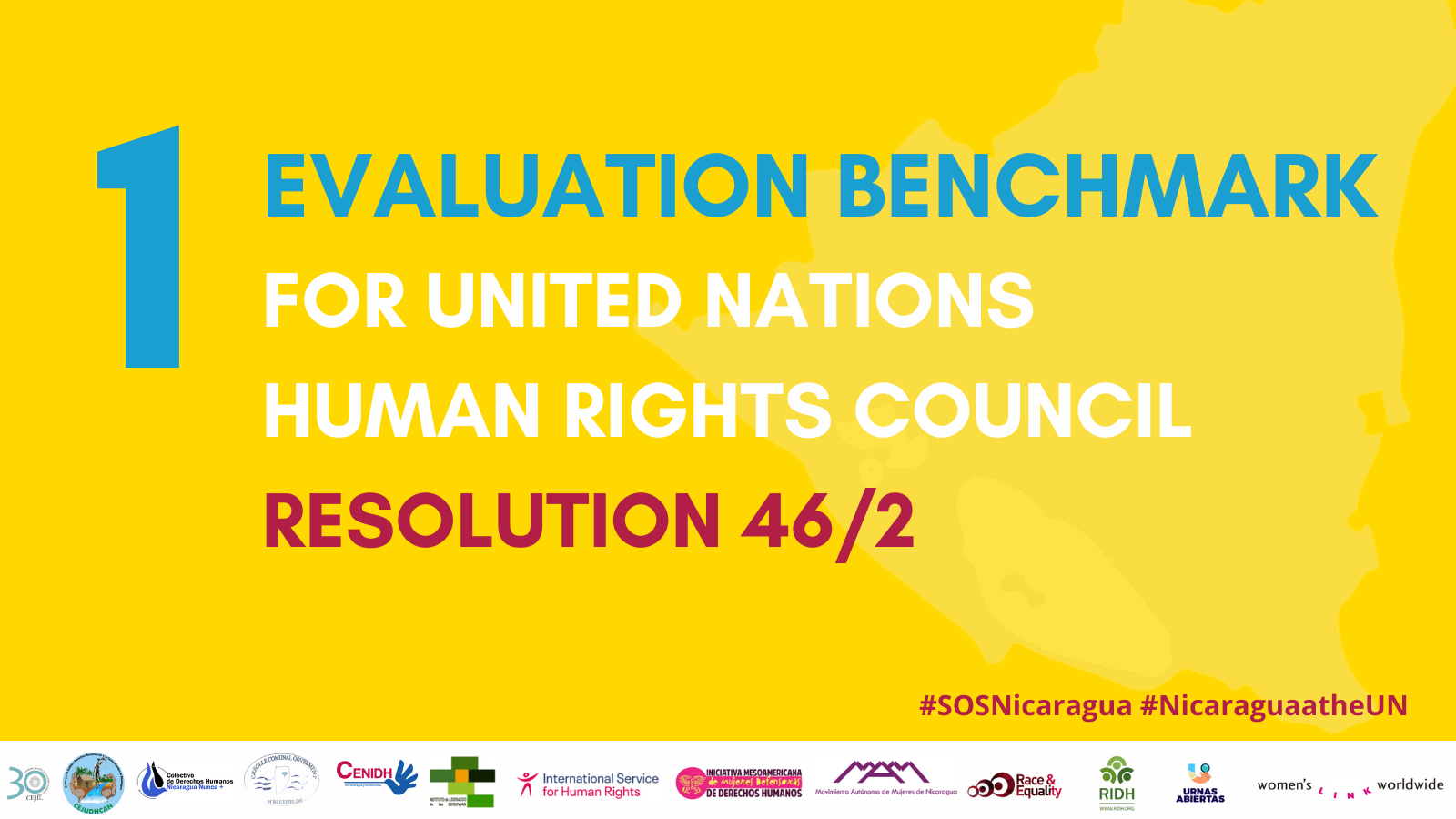Human rights organizations assess the implementation of United Nations resolution on Nicaragua
Washington, D.C.; August 11, 2021. Thirteen human rights organizations joined forces to evaluate the implementation of Resolution 46/2, passed by the UN Human Rights Council on March 23, 2021 to address […]

Washington, D.C.; August 11, 2021. Thirteen human rights organizations joined forces to evaluate the implementation of Resolution 46/2, passed by the UN Human Rights Council on March 23, 2021 to address the human rights situation in Nicaragua.
The resolution strengthens the mandate of UN High Commissioner for Human Rights Michelle Bachelet to address the situation in Nicaragua and mandates her to present two oral updates to the Human Rights Council in its June and September 2021 sessions, a separate oral update by the end of the year focusing specifically on the November 7 presidential elections, and an exhaustive report in its March 2022 session.
The resolution also makes a series of recommendations to the Nicaraguan government regarding the situation of human rights defenders; freedoms of expression and association; arbitrary detentions; sexual and gender-based violence; the rights of indigenous peoples; the rights to health, education, and work; free and fair elections that include international observers; and the return of international human rights protection mechanisms to the country.
On June 22, during her oral update to the Human Rights Council, Michelle Bachelet expressed concern at the accelerating human rights deterioration in the country, stressing that this decline “makes it unlikely that Nicaraguans will be able to fully exercise their political rights in the elections on 7 November.”
Following this, the thirteen rights groups developed a first evaluation benchmark for resolution 46/2 that measures the implementation of the 14 UN recommendations. Basing themselves on public information from the United Nations, the Inter-American human rights system, and independent civil society and journalists reporting, the organizations assessed the government’s actions against a series of objective indicators. Based on this study, the organizations have concluded that:
- The government of Nicaragua has taken no action to implement the recommendations from resolution 46/2, with the exception of the release of human rights defender Celia Cruz on April 25. Yet, despite her liberation, Celia’s legal situation remains uncertain, as the Supreme Court of Justice upheld her 13-years prison sentence.
- The government has taken no initial steps nor adopted any of the timeline requested in the resolution, such as the adoption of an implementation action plan or the call to adopt electoral reforms by May 2021. The government has instead rejected any criticism as “interventionist and supremacist.”
- The government has also taken actions contrary to the recommendations, resulting in a drastic reduction of civil society space and an increase in attacks on human rights defenders, journalists, presidential candidates, and dissidents.
Statement
The signatories urge the government of Nicaragua to put an immediate end to the ongoing depression; release all political prisoners; and adopt all necessary measures to ensure free, fair, and transparent elections.
The organizations call on the international community to continue monitoring, documenting, and expressing collective concern on the grave human rights situation facing the people of Nicaragua.
Finally, the signatories encourage the international community, national and international press, and civil society to join forces using the hashtags #SOSNicaragua and #NicaraguaattheUN to disseminate this assessment, and shed light on ongoing human rights violations in Nicaragua.

